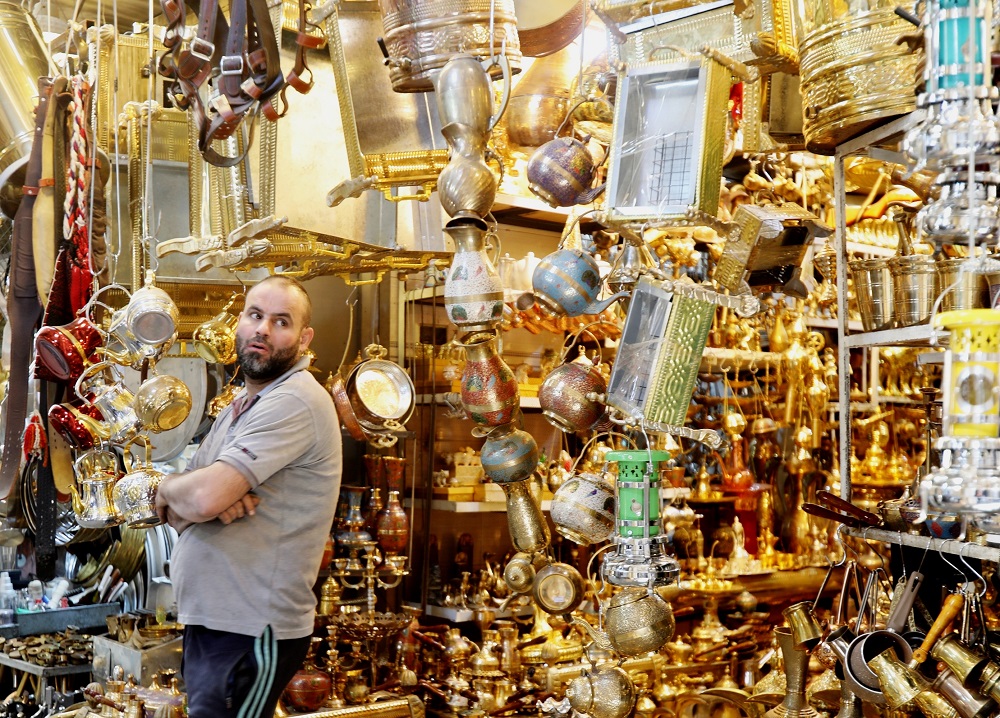Glory of Iraqi ancient copperware market fades away as craftsmen urge govt support
China Daily | Updated: 2019-11-25 10:22

BAGHDAD - For hundreds of years, the Safafeer copperware market in downtown Baghdad was one of the capital city's most popular landmarks, but the once loud, clear sounds of hammers tapping on copper are gradually fading away through neglect.
The copperware market, which reflects traditional cultural and economic life of Baghdad, is one of the oldest markets in the city and remains famous for producing various copper collectibles and artifacts.
Many Iraqis and foreigners used to buy souvenirs from the market, which is well-known for oil lamps and copper plates decorated with elegant Arabic calligraphy of the holy Quran.
Countless generations of fathers and sons have been working on copper sheets to manufacture pots, plates, lamps and other artifacts in a narrow street which lies on the eastern bank of the Tigris River.
However, things have changed. Few locals and almost no foreigners are visiting the market amid insecurity that engulfed Iraq after the United States-led invasion in 2003.
The post-invasion hurdles pushed most craftsmen to leave their shops, many of which were bought by fabric dealers who have become the majority in the ancient copperware market.
Amir Ali, 42, who inherited the skill of making copperware from his father, said that the market once housed some 194 shops and workshops, but only a few shops remain as many craftsmen have abandoned their ancestors' profession amid a recession of this trade.
"We have now only 24 to 25 shops because the profession is no longer lucrative and the shop owners cannot make a living, forcing them to sell shops or switch to other professions," Ali said.
The lack of government support, or rather, a clear policy to preserve this heritage, is the main reason behind the decline of the Safafeer market, the Iraqi coppersmith noted.
Mahmoud Ali al-Saffar, who worked 40 years in this market as a coppersmith, also expressed his sadness and deep regret for seeing the craftsmanship moving closer to extinction.
"I have great pain for what is happening in this historic market, where we used to smell in the air the fragrance of the historical glory of the ancient city of Baghdad," he said.
Saffar recalled his days in the market when many customers of many nationalities came to his shop or sent their friends to buy some artifacts representing ancient Iraqi civilizations such as the Lion of Babylon.
Mahdi Radhi Khalil, another shop owner in the market, said that he loves being a coppersmith and that he wouldn't have been here without his passion.
"If I didn't love this profession, I would have left it, as many of my colleagues did, as the work in the Safafeer market has been economically inefficient," Khalil said.
He called on the Iraqi authorities to prevent the import of cheap copper artifacts from other countries, support the handmade artifacts of the local coppersmiths, and help them bring new technology to their workshops.
"This old profession is on its way to disappear if the government do not support the coppersmiths."
Xinhua
























